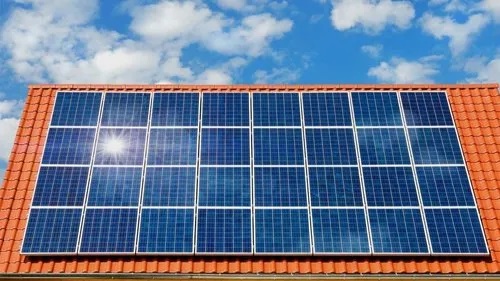Choosing Solar: What to Know Before Making the Switch

Amidst the global transition towards renewable energy, solar power emerges as a promising and readily available choice for both homeowners and businesses. Nevertheless, grasping the pivotal factors at play is essential before embarking on the journey to solar energy adoption. From assessing your property’s solar potential to navigating installation and financing options, here’s what you need to know before choosing solar.
Assess Your Solar Potential
Before investing in solar panels, assess your property’s solar potential to determine if it’s suitable for solar energy generation. Factors such as roof orientation, tilt, shading from trees or buildings, and local weather patterns can impact solar efficiency. Online solar calculators and professional solar assessments can provide insights into your property’s solar potential, helping you make informed decisions about system size and placement.
Understand Solar Incentives and Rebates
Numerous governments and utility providers extend incentives and rebates to promote solar adoption. These offerings can substantially alleviate the initial expenses associated with installing solar panels, rendering solar energy a more economical and attainable option. Research available incentives in your area, such as federal tax credits, state or local rebates, and net metering programs, to maximize savings and ensure a favorable return on investment.
Choose the Right Solar Installer
Choosing a reliable and seasoned solar installer plays a pivotal role in the outcome of your solar endeavor. Conduct thorough research on local solar firms, such as Now EV Ltd, peruse customer feedback, and obtain quotes from several installers to evaluate costs and offerings. Prioritize certifications and warranties covering equipment and installation craftsmanship to guarantee excellence and dependability.
Consider Your Energy Needs and Goals
Before installing solar panels, assess your energy needs and consumption patterns to determine the appropriate system size and configuration. Consider factors such as household size, energy-intensive appliances, and future growth in energy demand. Additionally, clarify your goals for solar energy, whether it’s reducing utility bills, achieving energy independence, or minimizing your carbon footprint, to tailor the solar solution to your specific needs and priorities.
Evaluate Financing Options
Solar panel installation represents a significant upfront investment, but there are various financing options available to make solar energy more affordable. Options such as solar loans, leases, power purchase agreements (PPAs), and solar savings agreements offer different terms and payment structures to suit individual preferences and financial situations. Compare financing options based on interest rates, loan terms, down payment requirements, and ownership models to find the best fit for your budget and goals.
Plan for Maintenance and Monitoring
Though solar panels demand little maintenance, routine checks and cleaning are vital to uphold peak performance and durability. Establish a maintenance regimen encompassing regular inspections, panel cleaning, and system performance monitoring to promptly detect any potential issues or inefficiencies. Some solar installers offer maintenance packages or monitoring services to simplify upkeep and maximize the lifespan of your solar investment.
In conclusion, choosing solar energy involves careful planning and consideration of various factors, from assessing solar potential and understanding incentives to selecting the right installer and financing option. By educating yourself about solar energy and working with trusted professionals, you can make informed decisions and embark on a successful solar journey. With proper planning and execution, solar power can provide clean, renewable energy for your home or business while saving you money and reducing your environmental impact for years to come.



